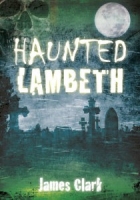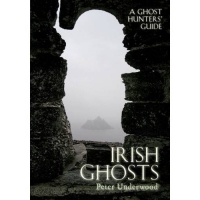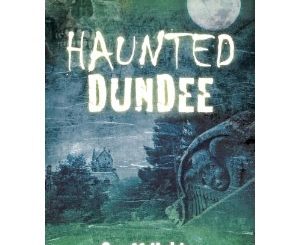The White Lady of Byegill
Chapter One: Work was progressing well on the new stretch of road from Gelt Bridge to Byegill Farm. It had taken some eight years and much lobbying by local representatives to obtain sufficient funding. This section of the increasingly busy trunk road from Carlisle to Newcastle had seen many accidents over the years, few of them serious, but nevertheless costly as each tended to close the road to other traffic for a time, with consequent difficult diversions .
One rather unusual aspect of the various accidents was the number of drivers, particularly those in coaches and commercial vehicles, who claimed they had been distracted by the sudden appearance on the roadway of what they believed to be a hitchhiker. This was invariably after dark and generally between 9.00 p.m. and midnight. There was rarely any corroborative evidence but many drivers, particularly those going towards Carlisle, were adamant that they had been forced to take evasive action to avoid someone on the road – sometimes described as a woman in a white coat. No hitchhiker was ever found in any of the incidents and most of the reports tended to focus on one small stretch, near the entrance to Edmond Castle, just short of where the public toilets are now situated. The cause was generally put down to a trick of the light as vehicles crested the small hill. But older local people hinted at a more sinister reason.
The groundwork for the road necessitated the removal of some fairly ancient woodland. This included the remains of a small building which it was suggested might have been the location of a charcoal burning kiln or some other one-man forest enterprise of the eighteenth or nineteenth century. However there was no conclusive evidence of anything which should be preserved for historical reasons and the required permission to clear it was obtained without difficulty. It was decided that the rubble obtained from this would be used to fill the proposed car park for the new toilets.
The building was not difficult to demolish, It was in fact little more that a pile of sandstone and other rocks covered with moss and heavily overgrown with shrubbery. One lift from a digger took most of it and the site foreman began directing the driver to a suitable position in which to drop it. As the rubble fell from the scoop of the digger a round whitish object rolled towards the foreman’s feet. He automatically put out one foot to stop it only to recoil in horror. The foreman had never seen a human skull in his life but he had little doubt this was what he was looking at now. After a few minutes during which everything came to a stop the foreman gathered his wits and went off to find a phone to inform his boss and the police.
Some three days later and following a lot of painstaking work by the forensic team the police found they had an almost entire human skeleton. Some smaller bones were missing but there was sufficient for the experts to state that the body was female, of about 30 years of age, and obviously dead for a considerable time. At the subsequent inquest the forensic scientist, when pressed, said he would hazard an estimate of at least a hundred years since death and suggested that the body was almost certainly that of someone who had not lived in the relatively unhealthy conditions of the ordinary working classes of the time. The condition of the bones and teeth indicated someone who had had a better than average lifestyle. The police evidence corroborated this suggestion as they had also found some buckles and a brooch of the type used to fix clothing in the early nineteenth century. These were definitely not the sort of adornment worn by the less well-off. A gold ring which could have been a wedding or dress ring was also found among the rubble.
There was no evidence of cause of death and only an open verdict was possible. The remains were registered as ‘unknown’ and eventually interred in Carlisle Cemetery.
Chapter Two: The landlord of the Hare and Hounds Inn at Gelt Bridge was depressed. Since the new railway connecting Carlisle with the east coast and Newcastle had opened his business had rapidly gone downhill. Where he would have had business from the often comparatively wealthy passengers of six or more stagecoaches a day he now had only the local evening trade of those who worked the farms and quarries nearby.
His wife had gone off with a soldier years ago. He had no family. His stables were almost empty. All he had left was the pony and cart. The profitable business of providing exchanges for the various coaching companies, and particularly the Royal Mail, no longer existed. Sixteen horses which could not earn their keep had gone to the knackery. The harness was rotting, there was no one to buy it, and his debtors were being very unsympathetic.
He leant on the bar top contemplating a very uncertain future. He was reaching forty and having followed his father as landlord, knew no other trade sufficiently well to find alternative employment. The new technology was appearing everywhere. Steam engines were replacing water power in the factories and quarries, fancy mowing and threshing machines that could replace the labour of an entire family were appearing on farms. A whole new generation of skilled workers was replacing the hordes of labourers who with their dependants had managed a living of sorts by providing cheap manpower for the wealth – and the wealthy – of the nation.
He was too old for the army, too late to emigrate, and completely unfit, through his relatively sedentary occupation, for work in the quarries. The few customers he still had could not offer him work, they were themselves scratching a living while providing wealth for their often unknown and unseen employers. And of course their meagre wages were barely sufficient to provide their basic necessities, never mind social drinking.
He had considered giving up the Hare and Hounds in favour of something a little more profitable. He knew that the landlord of the Shoulder of Mutton Inn in Brampton, now well into his seventies, was keen to retire to his daughter’s place at Longtown. It would suit nicely, close to town and with much better trade. But that would need capital, capital he had no hope of obtaining.
There was a commotion outside the door. A coach had come to a sudden halt with a clatter of hooves and a lot of shouting. Here was some business he thought, someone who needs rooms for the night, and food and drink no doubt. However the coach started off just as quickly in the direction of Carlisle. Before he had time to regret the loss of potential business the door burst open and a woman almost fell through it.
She appeared well dressed and seemed much more sophisticated than the local women. It was highly unusual of course to see any unaccompanied female in the inn at any time and the landlord expected a male companion to join her. But no one else appeared and after a moment she moved to a corner seat. She seemed nervous and agitated as the landlord approached to ask if she would like something to eat, or perhaps a room for the night.
She replied that she could not stop, she had to get to Carlisle that night, but would like some food. While preparing a plate of cold chicken and some bread the landlord studied his unusual visitor from his post at the bar. She was around thirty years of age, well spoken he had noticed, and her white dress covered with a long dark cloak seemed out of place for a traveller so far from urban sophistication. Some of the other occupant of the ale-house were also showing an interest. What was she doing here? When the meal was ready he decided to try to settle his curiosity.
She was a little reluctant at first to speak but her seemingly urgent need to find transport to Carlisle overtook her reticence. When he informed her that the only transport was the midday local coach from Brampton next day she became very agitated. She must get to Carlisle before eight o’clock in the morning she said even if she had to walk all night. When he asked why she had not continued in the coach by which she had arrived she became more voluble.
Her husband was in gaol she said. He had borrowed money to clear various gambling debts and had fallen foul of the law when the moneylenders had foreclosed. He had become involved in a variety of schemes most of which resulted in financial losses, some small, too many of substantial worth. He had written to her home in Hexham from gaol in Carlisle to say that he would almost certainly be transported to Liverpool and thence to Australia should his debts not be cleared by due date. The date was next day. He was to be taken by the 8 A.M. coach to Lancaster to join the train for Liverpool. If the debt could not be cleared she would never see him again.
The owner of the coach in which she had arrived was from Newcastle and a wealthy associate of her husband’s. He travelled regularly to Cumbria and, charitably she thought, offered to take her to see the magistrate in Carlisle. However his motive was anything but charitable and instead of having a trustworthy friend she found herself struggling to fend off his unwelcome advances. In his frustration he literally dumped her from the coach at the Hare and Hounds Inn and said she could find her own way to Carlisle, hence her lone appearance at the ale-house so late at night.
She had fifty pounds she said, sufficient to pay off the debt and the interest, with a little over to buy herself some food. She had little to spare however for transport to Carlisle and virtually nothing with which to pay her way back to Hexham. She would have to walk. It was 9.30. She must start walking now.
The landlord moved back to his bar while she finished her meal. Fifty pounds! A fortune to anyone in his position. He watched as she arranged the cloak over her dress. She came towards him with money to pay for the food. Fifty pounds! She asked for some extra bread for her journey. Fifty pounds! She confirmed the direction in which she must walk and left the ale-house.
The landlord called time, to some grumbling from his regulars. They were not used to being evicted so early. He insisted however. Some five minutes later he barred the inn door and headed towards the Carlisle road.
Chapter Three: Next morning the landlord of the Shoulder of Mutton had an early visitor. His neighbour from the Hare and Hounds was keen to do some business. His caller seemed excited and on edge. Despite his curiosity however, the old man refrained from asking too many questions. He knew the Hare and Hounds had not been doing well of late but with a deposit of ten pounds and a promise of the balance next week when the legal documents were completed he began to look forward to his retirement in Longtown.
The landlord of the Hare and Hounds set off early for Carlisle in his pony and cart. He had much to do. His debtors would receive a visit. He would see a solicitor about his new occupancy – the old man had given him a written agreement – and he would be back in time to offer all his old customers a celebratory drink before closing the Hare and Hounds for the last time.
As he passed the entrance to Edmond Castle and approached the small hill above Byegill he began to feel nervous and excited again. He urged the pony on, into a full gallop almost. The pony suddenly whinnied, reared, and attempted to turn. While he struggled desperately to control it he became aware that the pony’s head was completely covered by some sort of dark material. As he frantically attempted to hold onto his seat the figure of a woman all in white appeared by the nearside wheel. The pony dragged the cart completely round on the narrow road and galloped back towards Brampton.
A few regulars of the Hare and Hounds who worked the Gelt quarries felt something was amiss. They had walked down for their midday break to find the door still securely barred at a time when the landlord would have been busy preparing for his afternoon custom. The pony was fully harnessed and trying to get to its place in the stable. It was having difficulty because of the two broken cart shafts hanging to the harness.
Someone finally forced a window and gained access to the bar. There was no sign of the landlord. The bar was tidy and obviously prepared for the day’s trade. The only thing out of place was the long black cloak draped over the seat where the visitor of the previous night had rested.
The mounted postal courier from Carlisle came clattering up to the door, unusually fast for someone who normally allowed his horse to dictate the pace. In a state of great excitement he told his story. There would be no drinking in the Hare and Hounds Inn today he said. The landlord was lying by the roadside at Byegill near the wreck of his cart. He was dead and his neck appeared to be broken, the result of a fall perhaps?
At the subsequent inquest it was decided that the death was accidental. No witnesses could be found. The pony was known to be quiet and reliable and the cart was thought to be in proper condition before the accident. Perhaps something had startled the pony? No one knew of course. The court subsequently ruled that as there were no dependants and no trace of a will the forty pounds found on the deceased should be used to clear any debts and the balance given to the parish for relief of the poor. The Hare and Hounds Inn was closed and eventually became a private house.
The convict ship had long since left for Australia.
The new road was duly opened to public traffic, since when no one has ever reported unusual activity on the carriageway. However some who spent time in the car park by the toilets late at night have reported a sense of being watched. Perhaps the White Lady of Byegill occasionally returns to the place of her long sojourn?
By James Henderson




Recent Comments